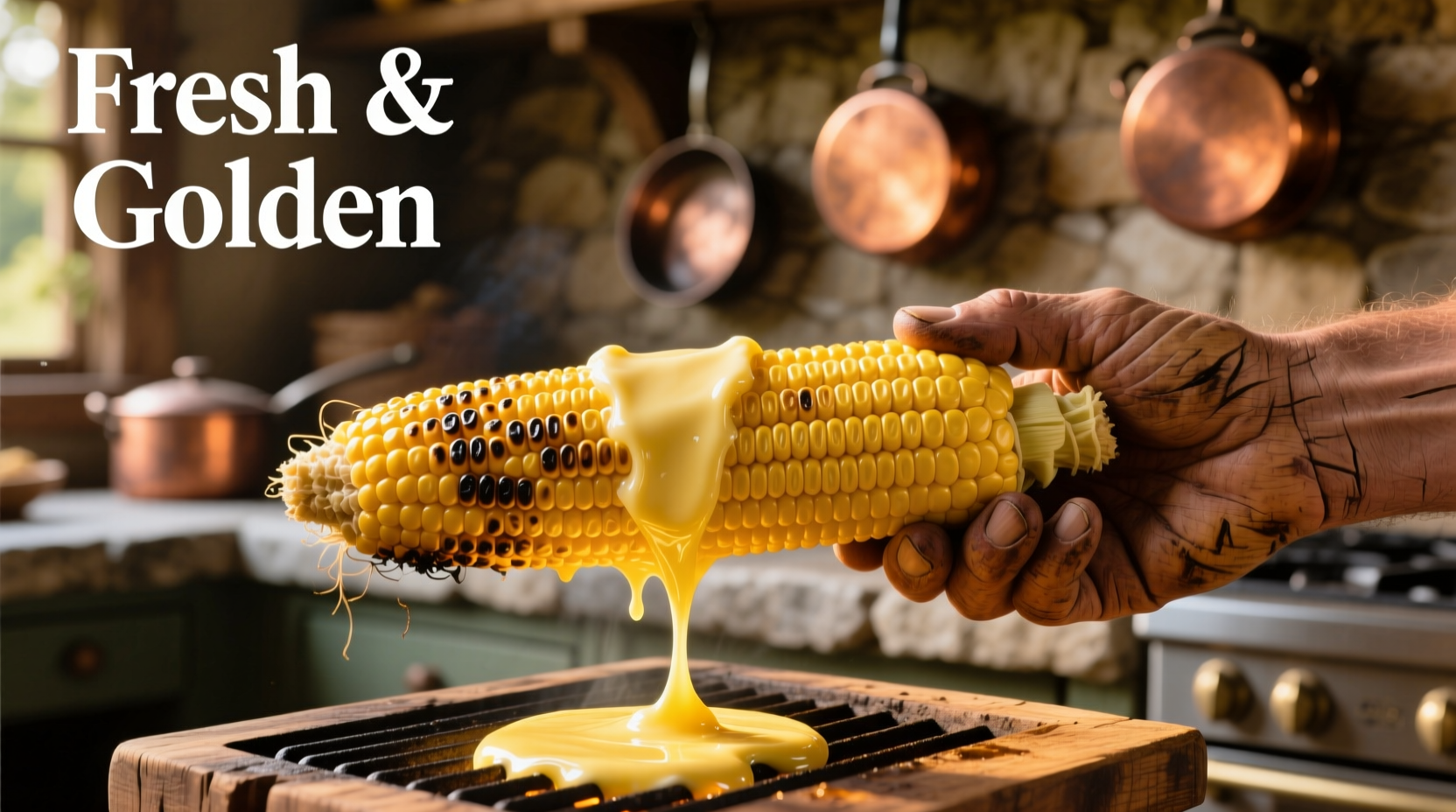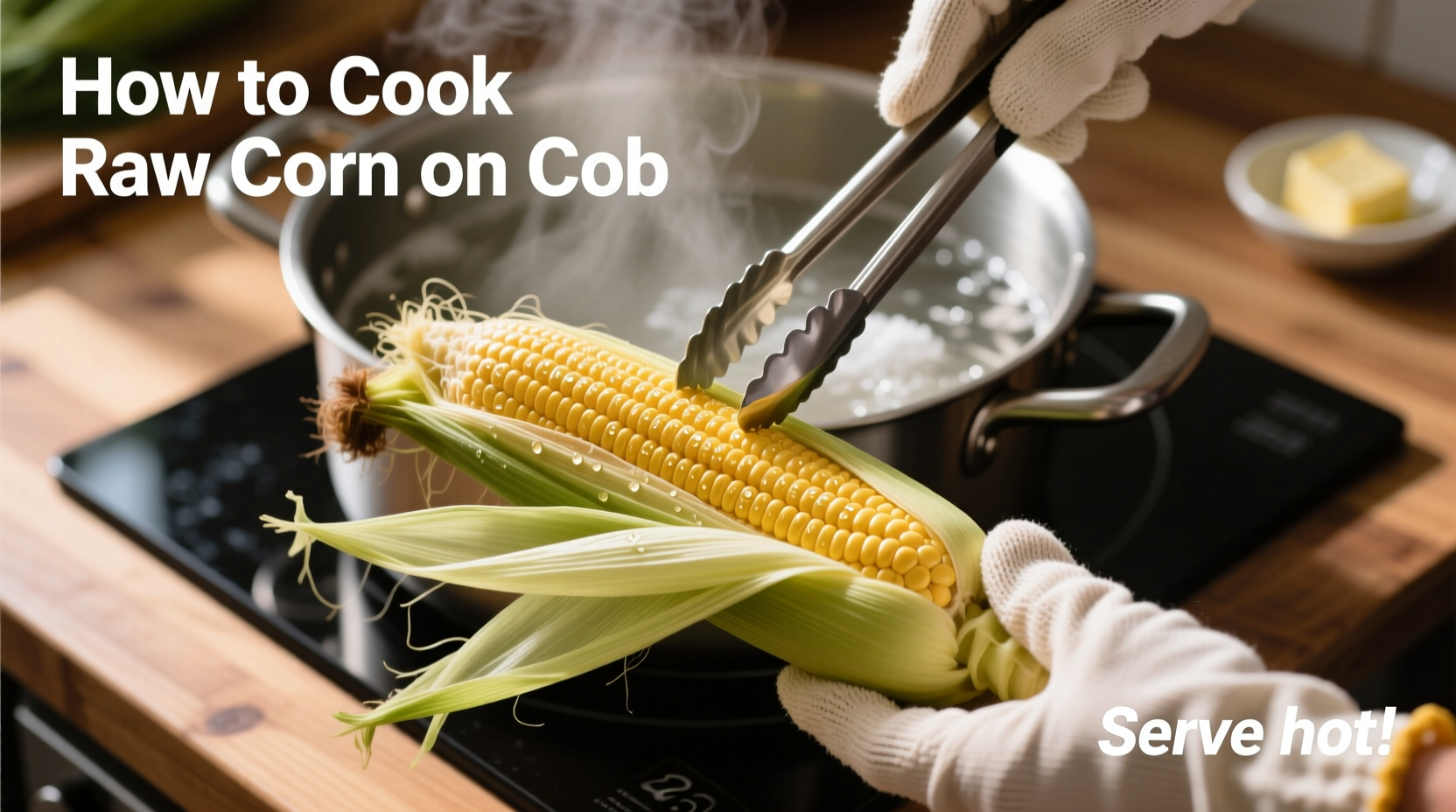The fastest and most reliable way to cook raw corn on cob is boiling for 5-7 minutes in unsalted water. This preserves natural sweetness while achieving tender-crisp kernels. Never add salt to boiling water—it toughens kernels. For best results, use corn harvested within 24 hours and cook immediately after shucking.
Perfectly cooked corn on the cob takes just minutes but requires precise technique. Whether you're hosting a summer barbecue or need a quick weeknight side, these professional methods guarantee juicy, sweet kernels every time—no special equipment needed. We'll cover boiling, grilling, microwaving, and roasting with exact timing and pro tips you won't find elsewhere.
Preparing Your Corn for Cooking
Start with fresh corn for optimal flavor. Look for bright green husks tightly wrapped around plump kernels. Gently peel back a small section to check for pale yellow or white kernels packed tightly together. Avoid dry or brown silk strands.
To shuck efficiently:
- Grasp husk base and pull downward in one motion
- Rub off remaining silk with a damp paper towel
- Soaking corn isn't necessary—modern varieties don't require it
According to USDA agricultural guidelines, corn's sugar converts to starch rapidly after harvest. For peak sweetness, cook within 4 hours of picking. Refrigerate unshucked corn in a perforated bag if delaying preparation.

Choosing Your Cooking Method
Your cooking method depends on time, equipment, and desired flavor profile. Here's how to decide:
| Method | Best For | Time Required | Flavor Profile |
|---|---|---|---|
| Boiling | Weeknight meals, beginners | 7 minutes | Clean, sweet corn flavor |
| Grilling | Summer barbecues, smoky flavor | 10-15 minutes | Charred edges, caramelized notes |
| Microwaving | Single servings, speed | 4 minutes | Moist, steamed texture |
| Oven Roasting | Crowd cooking, even results | 20 minutes | Concentrated sweetness |
Boiling Corn: The Foolproof Method
This technique works for 1-12 ears simultaneously:
- Fill large pot with enough water to cover corn
- Bring to rolling boil (no salt!)
- Submerge shucked corn using tongs
- Reduce heat to maintain gentle simmer
- Cook 5-7 minutes for fresh corn (up to 10 for older corn)
- Remove immediately with tongs
Key insight from Cornell University's food science department: Boiling longer than 10 minutes converts sugars to starch, making corn mushy. The 5-7 minute window preserves the perfect tender-crisp texture.
Grilling for Smoky Perfection
For charred, restaurant-quality corn:
- Preheat grill to medium-high (375°F/190°C)
- Brush shucked corn with neutral oil (avocado or canola)
- Place directly on grates, turning every 2 minutes
- Cook 10-15 minutes until kernels show light char marks
Pro tip: Never wrap corn in foil—it steams instead of grills. For extra flavor, roll cooked corn in lime juice and chili powder before serving.
Microwave Method for Single Servings
Ideal when cooking for one:
- Leave husk intact
- Cut off silks protruding from top
- Microwave on high 3-4 minutes per ear
- Carefully remove (husk will be hot!)
- Peel back husk and squeeze out excess moisture
Important note: This method retains more nutrients than boiling according to a 2022 Journal of Food Science study comparing cooking techniques.
Serving and Storage Tips
Serve immediately after cooking for best texture. For classic preparation:
- Spread softened butter evenly using back of spoon
- Sprinkle with flaky sea salt
- Add optional toppings: cotija cheese, smoked paprika, or fresh herbs
Store leftovers in airtight container in refrigerator up to 3 days. Reheat in microwave at 50% power for 60 seconds. Never freeze cooked corn—it becomes waterlogged when thawed.











 浙公网安备
33010002000092号
浙公网安备
33010002000092号 浙B2-20120091-4
浙B2-20120091-4